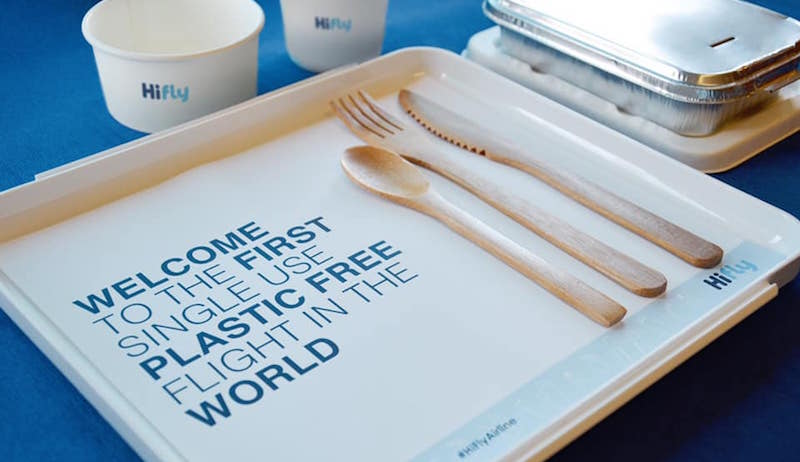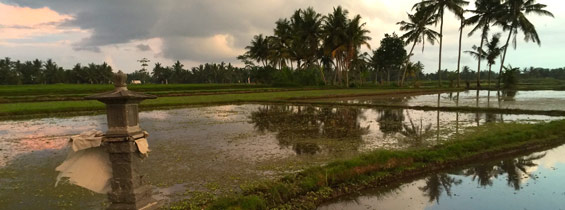Portuguese carrier Hi Fly is taking things to greener heights in the airline industry. The company made headlines recently for debuting the world’s first plastic-free flight at the end of 2018. Flying from Lisbon, Portugal to Natal, Brazil on Dec 26, the aircraft shed any trace of single-use plastic on board, including plastic cups, cutlery, toothbrushes, food containers, sick bags, and drink bottles.
If you’ve never heard of Hi Fly, the charter airline headquartered in Lisbon specializes in aircraft leases for other airlines, tour operators, and companies.
Over the festive year-end period, Hi Fly conducted four trial flights with more than 700 passengers, in an attempt to work towards making its entire fleet free of plastic by the end of 2019. According to its press release, the test flights “will prevent around 350kg of single-use, virtually indestructible plastics from poisoning our environment”.
In place of the plastic items were Vegware-made bamboo cutlery and containers that can be composted after use, as well as alternative products made with recycled, plant-based and renewable materials.
While Hi Fly may be the first airline to halt its use of plastics, other carriers have also pledged to ban single-use plastic from their flights, and are working towards making good on their word.
A year ago, low-cost Irish carrier Ryanair announced its intention to get rid of non-recyclable plastics on board planes and in head offices within five years. In October last year, Air New Zealand also declared its commitment to replacing single-use plastic products such as cups, lids, straws, and toothbrushes from its aircraft and lounges.
In a UN Environmental Program report last year on sustainability, 79 percent of the world’s single-use plastic waste was said to either end up in a landfill or litter the environment, with only nine percent recycled and 12 percent incinerated. Most commonly found items were cigarette butts, drinking bottles, bottle caps, food wrappers, and grocery bags.





